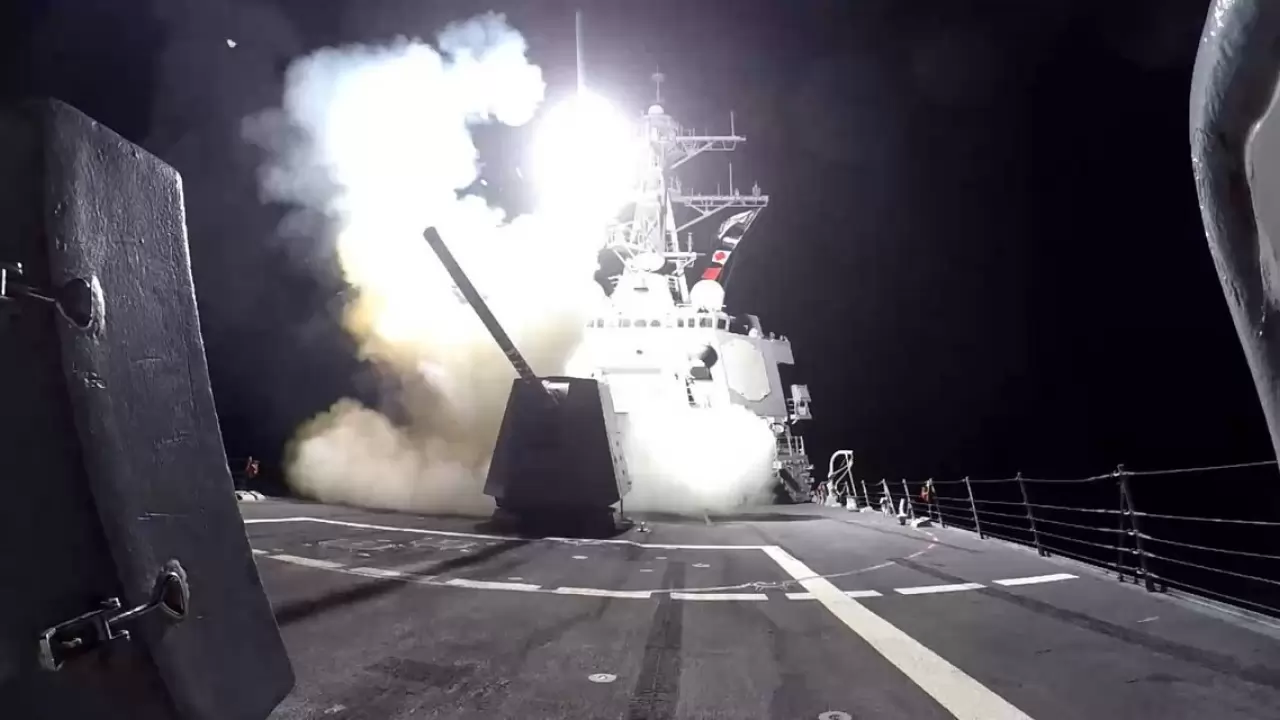
X/@CENTCOM
The United States and the United Kingdom conducted strikes against 36 Houthi targets in Yemen on the second day of operations against Iran-linked groups. These actions followed a deadly attack on American troops the previous weekend. The strikes carried out on Saturday, targeted buried weapons storage facilities, missile systems, launchers, and other capabilities used by the Houthis to attack Red Sea shipping. The Pentagon reported also reported that it targeted 13 locations across the country.
U.S. Forces, Allies Conduct Joint Strikes in Yemen
As part of ongoing international efforts to respond to increased Iranian-backed Houthi destabilizing and illegal activities in the region, on Feb. 3 at approximately 11:30 p.m. (Sanaa time), U.S. Central Command forces,… pic.twitter.com/hlfLY1QjOd— U.S. Central Command (@CENTCOM) February 3, 2024
The joint attack is part of an ongoing conflict that has expanded into the Middle East since October 7, when the Palestinian group Hamas initiated hostilities by entering Israel from the Gaza Strip. Following the attack, it led to a broader war involving various armed groups supported by Tehran.
Residents in Houthi-controlled Sanaa reported that the strikes shook buildings. The Houthi military spokesperson, Yahya Sarea, stated that the U.S. strikes "will not pass without a response and consequences," though the group did not announce any casualties. Houthi-run media described these strikes as "the most violent" yet.
⚡️Rare footage of US and British airstrike on Yemen tonight. pic.twitter.com/KhYfkDfM7R
— Military Discover (@Militarydiscove) February 4, 2024
The Yemen strikes coincide with the US campaign in response to the killing of three American soldiers in a drone strike by Iran-backed operatives in Jordan a week ago. On Friday, the US initiated the first wave of retaliation, targeting over 85 locations in Iraq and Syria linked to Iran's Islamic Revolutionary Guard Corps (IRGC) and militias it supports. The situation has raised concerns about further escalation.
USCENTCOM Destroys an Anti-Ship Cruise Missile in Yemen
— U.S. Central Command (@CENTCOM) February 4, 2024
On Feb. 4, at approximately 4 a.m. (Sanaa time), U.S. Central Command forces conducted a strike in self-defense against a Houthi anti-ship cruise missile prepared to launch against ships in the Red Sea. U.S. forces… pic.twitter.com/zf29DbuioL
While Iran backing groups involved in the conflict, has avoided direct involvement so far. It is being speculated that Iran aims to keep the conflict outside its borders to prevent attacks on its cities. Iran's foreign ministry condemned the latest attacks on Yemen as a "flagrant violation of international law."
Amid the ongoing conflict between Palestinians and Israel, the Houthi attacks have been criticized by the US and its allies as indiscriminate and a threat to global trade. Major shipping lines have altered routes, increasing costs and raising concerns about global inflation.
President Joe Biden's strategy in Yemen aims to weaken Houthi operatives without directly confronting Iran. It involves limited military strikes and sanctions, seeking to punish the Houthis while minimizing the risk of a broader Middle East conflict. The U.S. has conducted multiple strikes against Houthi targets in recent weeks.
Houthi spokesperson Sarea said that the group will persist in its support for the Palestinian people despite the attacks. The U.S. military's Central Command reported additional strikes on cruise missiles the Houthis were preparing to launch against ships in the Red Sea, emphasizing that these actions were not an escalation.
The strikes in Yemen received support from Australia, Bahrain, Canada, Denmark, the Netherlands, and New Zealand. The Houthi military claimed a total of 48 airstrikes by the U.S. and the UK, with 13 in the capital Sanaa, and others in different governorates.
Oman expressed grave concerns over the escalating situation, criticizing the effectiveness of U.S. attacks in Iraq and Syria and highlighting the impact on regional safety, stability, and efforts to address challenges like violence and extremism.





Copyright © 2025 Top Indian News
